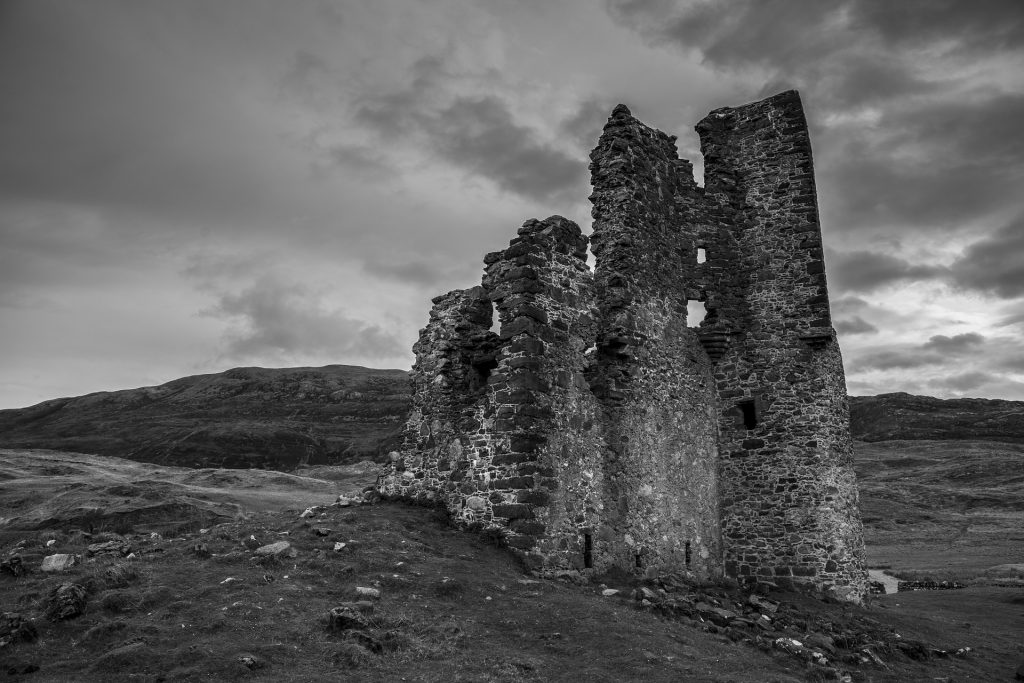
This is a story told in the lichens and mosses upon ancient tumbled stones…
When the Lord-by-the-Sea came for another tale from the Pilgrim Woman, she noticed the servant girl beckon to her. In a mist of patchouli and the sibilance of skirts on wood, she went straight to the girl. The rich man glared as she passed.
‘Can we have a story from where you come from, please?’ the girl asked.
‘A tale from the north lands? Nought would please me more,’ the Pilgrim Woman answered – and this is the tale she told:
A saint was bothered by too many folk coming to ask him questions. He could hardly think or work or pray for the press of them.Then he had a dream. Three signs would be shown to him at a place where he might do the most good.
The saint puzzled at the dream. He had to get away to ponder its meaning.
At length, he sent for a boat to take him to the loneliest uninhabited isle. When it neared the desolate shore, the saint jumped from the prow of the boat and waved the ferryman away.
‘Will I not stay for you?’ the ferryman asked. ‘That isle has ill luck.’
The saint shook his shaggy hair and bounded off across the rocks on the beach. Bladderwrack popped beneath his sandals. Oars splashed and he was left alone on the outer isle.
The first omen was given by the slurred lines of tracks. Here and there, the marks of hooked nails dug deep into the gritty sand. Brine filled the bottom of them, and rested in heel-marks, cloven footprints and the sinuous windings of dragged tails.
Sunshine made the second portent clear. It glinted on scales scattered beside the tracks. Huge, dark showings of jet; small sprinkles of garnets and fine amber shards, they had fallen from different hides.
The saint picked one up with care. Still, it cut into his work-worn fingers.
‘So sharp – the beast can never get close to another of its kind,’ he murmured. His voice wavered on the edge between pity and wonder.
The third token was the stench. As the saint left the salt breezes behind, it rose from the ground. Bent grass lay slimed, stained and reeking of the passage of the beasts.
The saint lifted the hem of his robe and kept his feet away from the brown and poisoned turf. The rotting smell curled inside his nostrils: twin nests for the pungent signs. There was no mistake.
He lifted his hands and looked heavenwards.
‘I have come to the place, Lord,’ he said, ‘I have come to my long home.’
And so it was that the Outer Isle, Drekkinsey, came to have the Last Chapel built upon it.
